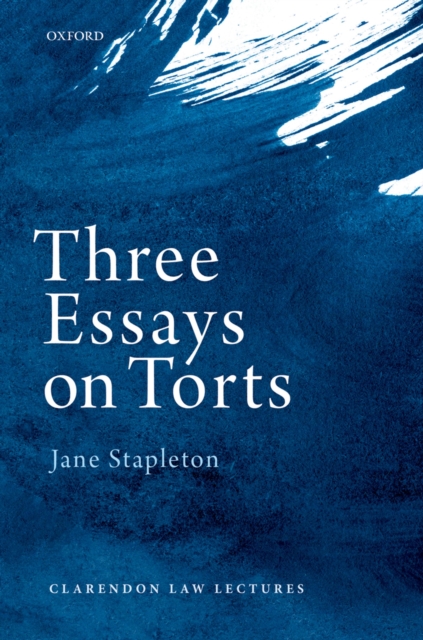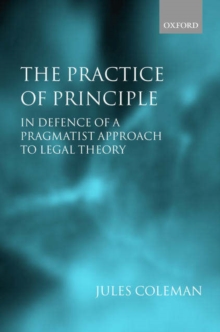
Description
This book of essays champions tort scholarship that puts judges at centre stage: what they do, how they understand their role, the heterogeneous reasons they give for their decisions, and their constitutional responsibility to identify and articulate the 'living' and 'evolving' common law. This is 'reflexive tort scholarship'. Reflexive tort scholars seek dialogue with Bench and Bar.
Their approach is very different from the currently fashionable academic searchfor 'grand theories' that descriptively assert that tort law is fundamentally 'all about one thing', a unifying idea that alone explains and justifies the whole of tort law. This book illustrates the advantages and pay-offs of the reflexive style of scholarship by showing how it illuminates keyfeatures of tort law.
The first essay contrasts the reflexive approach with the Grand Theory approach, while the second essay identifies a principle of tort law (the 'cooperative principle'), that is latent in the cases and that vindicates the value of collaborative human arrangements.
Identifying this principle calls into question, in disputes between commercial parties, the reasoning used to support one of the most entrenched lines of authority in tort law - that based on the famous case ofHedley Byrne v Heller. The final essay deploys the reflexive method to argue that the iconic 'but-for' test of factual causation is inadequate and narrower than the concept actually utilized in the cases.
Application of the method also prompts a reassessment of the 'scope of duty' concept and of theappropriate characterisation of the much-discussed decision in SAAMCO. These essays, based on the 2018 Clarendon Law Lectures given at Oxford University, clearly demonstrate the value of scholarship that 'takes the judges seriously'.
Information
-
Download - Immediately Available
- Format:PDF
- Pages:128 pages
- Publisher:OUP Oxford
- Publication Date:21/01/2021
- Category:
- ISBN:9780192645821
Other Formats
- EPUB from £51.00
Information
-
Download - Immediately Available
- Format:PDF
- Pages:128 pages
- Publisher:OUP Oxford
- Publication Date:21/01/2021
- Category:
- ISBN:9780192645821










